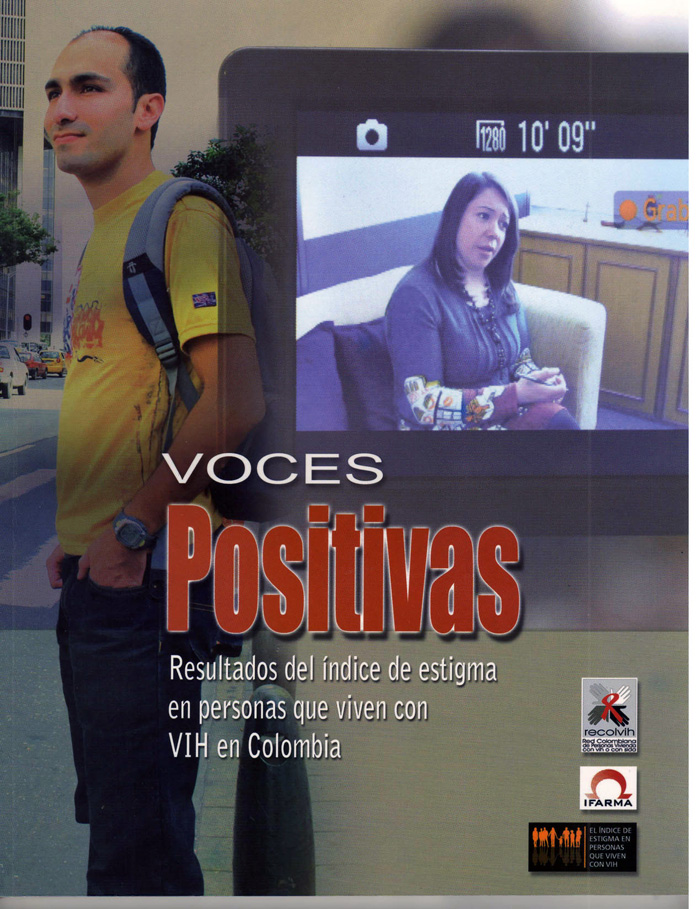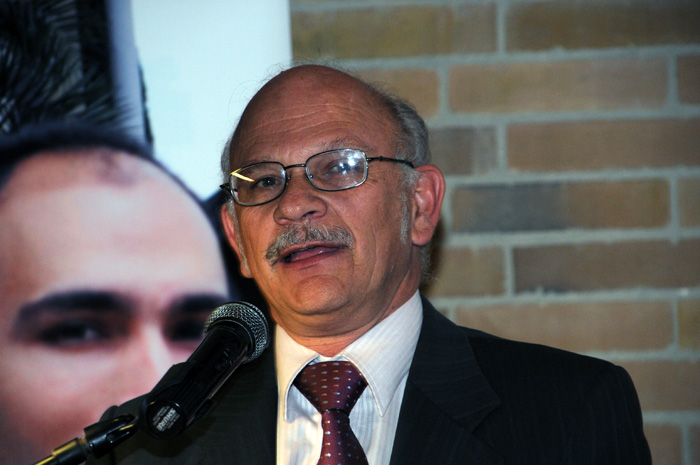Juan Simbaqueba, a psychologist from Universidad Nacional de Colombia and main researcher of this project, presented some of the results generated by social exclusion. "70% of people infected with HIV are unemployed or have an informal job, 29% of them have been denied access to health services sometime, and one in each four people interviewed has been physically assaulted during the last year," asserted Simbaqueba.
This is the first time that a study to measure the prejudice against people with HIV is made in the country. The book entitled Voces positivas. Resultado del índice de estigma en personas que viven con VIH en Colombia. (Positive Voices. A result of the index of stigma of people who live with HIV in Colombia), made by the Colombian Network of People Who Live with HIV (Recolvih, for its acronym in Spanish), supported by the Joint United Nations Program on HIV/AIDS (UNAIDS) and the Institute for Medicine Research in Health Systems (Ifarma) was presented in Universidad Nacional de Colombia.
With the interviews made to a thousand people with HIV in Bogotá, the Atlantic Coast, Valle del Cauca, The Coffee Belt, Antioquia, Santander, and Norte de Santander (taking into account sexual orientation, sex, age, education, marital status, income, employment situation, access to health systems, among other variables), it was established that the stigma related to VIH infection is one of the main barriers to guarantee the access of these people to basic essential health services and social welfare.
The study shows that the prejudice is bigger if it is considered that social rejection has generated a self-stigmatization on people with AIDS, making them feel excluded from places, social and personal relationships, among others, due to feeling of fear, shame and depression.
As Simbaqueba mentioned, 50% of the people infected with the virus blame themselves, 38% have low esteem, 37% feel embarrassed and 19% experience suicidal tendencies.
Franklin Gil, a collaborator and researcher from the School of Gender Studies of Universidad Nacional de Colombia, explains that one of the causes for social discrimination is lack of knowledge about the spread of the virus. "There are a lot of people who think that it spreads by having contact with an infected person, living with them, sharing food or silverware, shaking hands, etc., and of course it makes no sense scientifically talking" asserted Gil.
For this reason, he suggested making a big investment in communication strategies in which the causes of infection are explained and the myths are undermined.
The study recommends the State breaking the stigmas that prevent the access to programs of prevention and to treatments for people with HIV. Besides, the expert mentions that the health advisory and support activities must be focused not only on the individual but also on the entire family nucleus.
 Correo Electrónico
Correo Electrónico
 DNINFOA - SIA
DNINFOA - SIA
 Bibliotecas
Bibliotecas
 Convocatorias
Convocatorias
 Identidad UNAL
Identidad UNAL





